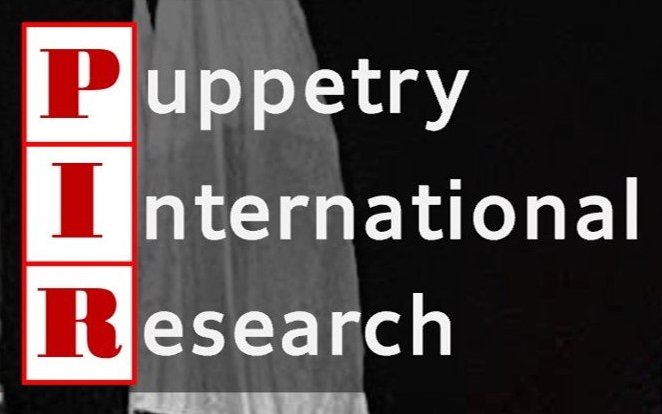A Warm Welcome in South Korea!! - Congress report from Councilor Claudia Orenstein
/It was a delight to represent UNIMA-USA as a Councilor at the UNIMA International Congress in Chuncheon, South Korea. This was my second time participating in an UNIMA Congress and both experiences have confirmed that the best part of any Congress is gathering with people from around the world involved in puppetry as performers, teachers, scholars, and producers—meeting old friends and making new ones—and chatting over meals or while attending shows to catch up on everyone’s projects and imagine new possibilities for the future. At a historical moment framed by international conflicts, it was heartening to know that puppetry continues to be an artistic field of generosity in which people work with goodwill towards mutual understanding and collaboration.
The first day of the Congress was devoted to honoring the awardees of this years’ Heritage Awards, celebrated for their efforts in preserving puppetry traditions and history. Among the awardees who attended in person were the Japanese hakomawashi performers, Nakauchi Masako and Minami Kumiyo, hakomawashi scholar, collector, and museum curator, Tsujimoto Kazuhide, and Japanese kuruma ningyō (cart puppetry) performer, Nishikawa Koryū V, all of whose work I have written about and whom I nominated for these awards. It was an honor, in the few minutes allotted, for me to introduce the Congress to the important aspects of these Japanese traditions and the work the winners have put in to reviving and sustaining them. (To see the full list of UNIMA Heritage Award winners, go to https://www.unima.org/en/unima-heritage-awards/) Heritage Commission Chair, Idoya Otegui, and Commission members Nancy Staub, Kathy Foley, and others did a great job in reviving the awards and bringing the event to fruition.
Further shout-outs are due to UNIMA-USA representatives— Nancy Staub, Kristin Haverty, Chad Williams, Jeanne Marie Kevins, and Manuel Moran—who, bright-eyed and bushy-tailed, attended Congress sessions online despite the ungodly hours of the events in US time zones. Chad presented the UNIMA-USA report, cataloging UNIMA-USA’s full range of projects and activities over the last few years, while Kristin gave the report for UNIMA’s Communications Commission, which she headed up. Kurt Hunter, Kathy Foley, Dimitri Carter, Karen Smith, and I made up UNIMA-USA’s on-site representation, with Karen finishing her term as UNIMA President and Dimitri serving as Representative-At-Large. Both Kathy Foley and Karen Smith became UNIMA Members of Honor, Karen publicly receiving the honor bestowed on her in 2021, alongside other honorees. (For the full list of UNIMA Members of Honor, go to www https://www.unima.org/en/members-of-honor/). Kathy Foley’s call, in her speech, to remember that the beauty of puppetry should always lead our work, was quoted repeatedly by admiring colleagues throughout the rest of the week.
The most important action the Congress took was to elect a new Executive Committee with Louise Lapointe, from Canada, as President and Fabrizio Montecchi, from Italy, as General Secretary. These two put forth a proposal that outlines using the next four years to transform UNIMA, reimagining the organization on the occasion of its 100th anniversary for the 21st century. Importantly, they aim to institute reforms for tedious organizational matters to be addressed in online meetings so that in person gatherings can take better advantage of bringing puppetry lovers together. The least appealing part of Congresses has undoubtedly been the excessive time spent clarifying and voting on motions to change the organization’s statutes. With an inspiring incoming Executive Committee boasting members from across the globe, the Congress ended in a spirit of optimism, especially for the upcoming 100th anniversary Congress be held in 2029 in Prague, the city where UNIMA was founded. (For the full Executive Committee members list, see https://www.unima.org/en/announcement-results-of-the-executive-committee-election-2025-2029/),
UNIMA Korea went all out to provide a warm welcome and rich experience for Congress members. Highlights of the Congress, outside of the meeting sessions, included an excursion to Nami Island, where delegates walked in nature, watched a series of one-person lambe-lambe performances, or woo-joo programs as they are known in Korea, and enjoyed a lavish Korean BBQ. We also dined one night at a restaurant specializing in a local dish where spicy chicken, vegetables, and rice are cooked in a skillet at your table and eaten wrapped in lettuce leaves. In an event hosted by UNIMA Canada, UNIMA launched the first UNIMAGAZINE, a publication with articles drawn from the many puppetry magazines published by UNIMA chapters around the world. UNIMA-USA contributed Deniz Khateri’s profile of puppeteer Pura Belpré and Ana Lorite’s article “From Hands to Hearts: The Cross-Cultural Influence of Puppetry.” The magazine is available in hard copy or pdf at https://www.unima.org/en/unimagazine/. The Congress was preceded by a one-day symposium of papers and panels on the theme of Crossing Borders with interesting presentations from a range of artists and scholars.
The Chunchon puppetry festival, taking place alongside the Congress, offered its own amazing highlights. UNIMA delegates, along with festival performers and community groups, walked in the opening night parade down Chuncheon’s main streets. It was one of the most robust puppet parades I have been part of and ended in a plaza surrounded by bleachers full of enthusiastic locals. After we made our round of the plaza—large-scale figures before and after us filled both the physical space and the huge projection screen behind it— we were surprised by the overwhelming finale. It included a marching band, a chorus of singing children, another group of children on stilts, a troupe of dancers moving with large white feathers, several enormous white bird puppets, and, finally, an eruption of confetti as the image of Cocobau, the festival mascot, spun in light projections across the nearby buildings. A stunning spectacle! With thirty-two years of experience producing puppet festivals, Chunchon proved it knows how to celebrate opening night! Chuncheon’s mayor gave a speech here and at several other events, along with other municipal cultural and arts officials. The closing ceremonies for the Congress were equally extravagant, with a buffet dinner at a restaurant called Santorini on the top of a mountain offering a spectacular view of Chunchon, and performances by a contemporary dance troupe, marionette artists, and a musical duo drawing from shamanic music.
The festival took place at several locations around town, but was primarily concentrated at Chuncheon’s puppet theatre complex, with “off” or fringe performances at outdoor stages throughout the grounds. The bulk of the offerings were aimed at children and family audiences, with many very polished Korean troupes performing. International troupes, like Papermoon theatre from Indonesia, were also included in the festival. One highlight, not for children, was a show from Haddangse Theatre Company that the full Congress attended together, with a talkback afterwards. Gulliver’s Travels: Zoom In Out, about a Korean woman’s experience of displacement during her time in Australia, offered clever experimentation with simple technologies. At a party where the protagonist feels so out-of-place that she seems to have shrunk in stature, she is represented by a pre-recorded video of her in motion played on a cell phone. In the recording, she runs forward as the guests at the party drag the phone across the table, giving the appearance that she is running away from them across the tabletop. They’d guests appear to dung the phone in a glass of water (placing it behind the glass) as the pre-recorded actor on the phone attempts to swim up and out of the glass. In another sequence, a projection makes the protagonist appear as a giant against the other performers, achieved from the camera’s perspective on the arrangement of actors on stage. The simple use of cell phones and projected imagery, done in front of the audience, to create these stage illusions offered an innovative take on the idea of puppetry and character manipulation.
After the Congress and festival ended, I was fortunate to participate in the week-long Eumma Traditional Korean Puppetry Workshop sponsored by UNIMA-USA and UC Santa Cruz, organized by Kathy Foley, Mina Kyounghye Kwon, and Jungmin Song. It kicked off with an afternoon symposium during which each of the participants gave a formal presentation on their work or research area, which included using puppets in teaching children with special needs, crafting cardboard in puppet construction, topics in traditional Korean puppetry scholarship, and the use of nature as objects in contemporary performances, among others. The workshop was led by Daejin Eum and his talented team at their studio space outside Seoul. Participatns learned to carve and build wooden puppets based on figures from a Korean folk puppetry. There were also lessons in drumming and masked dancing that are all part of the form. While some participants, like Dimitri Carter, Bradford Clark, and Kay Yasugi (from UNIMA Australia), are experienced carvers, this was my first time carving wood, and the artists were extremely supportive at every step. By the end of the workshop I had (with a lot of help) completed a puppet modeled on a traditional figure, an old man named Pak Cheomji, with a mouth that opens and closes and arms that go up and down. He sports a wild mane of white hair made from sheepskin and traditional Korean dress. On the final day we performed our puppets in the studio, from behind a screen the troupe set up, accompanied by their professional drumming. It was an exhilarating culmination to a full week of events. Eum’s and his colleagues were patient and generous throughout and presented us each with official certificates of completion at the end. Mina and Min (Jungmin) helped with translation all week long. Following the end of the workshop proper, Mina organized a one-day workshop for us with a traditional Songpa masked dance troupe. We learned about their masked characters and tried out their moves. The following day, she led us on an excursion to Hahoe Village, a UNESCO Tangible Culture Heritage village, a two-hour train ride from Seoul, that is also home to a UNESCO Intangible Cultural Heritage masked-dance form. We spoke briefly with the performers who still practice this tradition before catching their masterful performance at a packed outdoor stage. Hahoe is also home to an impressive mask museum, with masks from Korea’s numerous mask performance traditions as well as other forms from around the world.
The two weeks I spent in Korea were rich and full and helped me better understand and appreciate both Korea’s contemporary puppetry scene and its performing arts heritage. I am grateful for the support of UNIMA-USA, Hunter College, and UC Santa Cruz (courtesy of Kathy Foley) that allowed me to take part in all these life transforming events.























